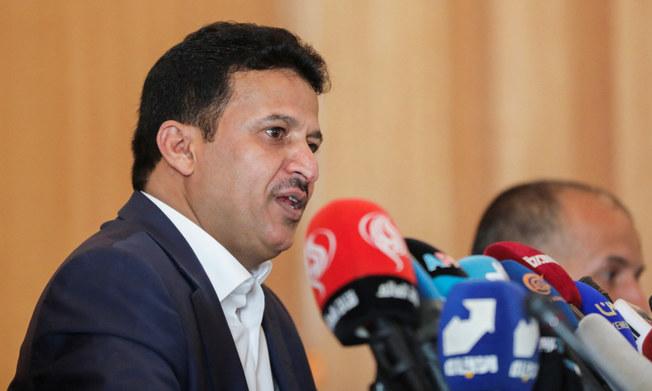
Houthis extend olive branch to Saudi in thanks for US, UK strike abstention
text_fieldsYemen's Houthi militia has expressed readiness to pursue peace talks with Saudi Arabia despite ongoing challenges, including what they perceive as obstructive actions from the United States.
Deputy Foreign Minister Hussein Al-Ezzi conveyed the group's willingness to engage in negotiations with Riyadh during a press briefing in Sanaa. He specifically commended Saudi Arabia for abstaining from participating in US-UK strikes on Yemen, emphasizing the militia's eagerness to pursue diplomatic solutions despite external pressures.
Al-Ezzi also issued a stern warning against the US, citing approximately 300 strikes carried out by American and British forces in Yemen since January 12. He cautioned that these actions would not go unanswered and threatened retaliation, asserting that the Houthi militia views the US as the aggressor in the conflict.
Recent incidents in the Red Sea, including the seizure of a commercial ship and the launching of missiles and drones targeting both civilian and military vessels, have heightened tensions. Al-Ezzi clarified that such actions were in solidarity with Palestine and specifically targeted ships with ties to Israel or en route to the country.
Following US and UK strikes on Yemen, American and British military and commercial ships were reportedly added to the militia's list of potential targets.
Reports of explosions in Hodeidah on Sunday night, allegedly caused by airstrikes conducted by US and UK forces, further escalated the situation. The Houthi-controlled western province has been a focal point of conflict, with the internationally recognized Yemeni government attributing increased violence in the Red Sea to pressure from the United Nations and former envoy Martin Griffiths to halt offensive operations in Hodeidah.
Yemeni Information Minister Muammar Al-Eryani criticized the UN-brokered Stockholm Agreement, which aimed to end the offensive on Hodeidah, claiming that it exacerbated the humanitarian crisis by allowing Houthi militia control over crucial ports. Al-Eryani warned of the consequences of permitting Iranian influence, primarily through support for the Houthi militia, in the region.























